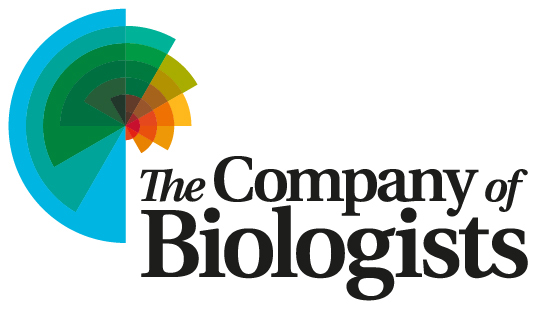BNA Annual General Meeting 2025
1st April 2025
BNA Event - 12th Dec 2022

 The BNA Festive Symposium 2022
The BNA Festive Symposium 2022Inherent to the human condition throughout recorded history, psychiatric and mental health disorders have a profound impact on human experience. The cost to individuals and to society is immeasurable.
Recent progress in raising awareness and reducing stigma around mental health is to be welcomed. However, the fundamental understanding of mental health disorders remains an only partially-met need in the quest to tackle and reduce their impact and cost.
This meeting will explore what neuroscience can and is doing to meet that need. It will bring together neuroscientists in academia, the clinic and the commercial sector to share their latest research, and help slowly build our understanding of mental health. It is only by doing this that we can make a difference to individuals and communities.
 Meike Bartels, Vrije Universiteit Amsterdam
Meike Bartels, Vrije Universiteit Amsterdam
The genetics of well-being and happiness
Meike is a psychologist and behavior geneticist known for her research on the genetics of happiness and subjective well-being. She is professor in "Behavior and Quantitative Genetics" at the Department of Biological Psychology at VU University Amsterdam and affiliated with the Amsterdam Public Health Institute. She also holds a University Research Chair in Genetics and Wellbeing at the Vrije Universiteit Amsterdam. In 2008, she received the Fuller & Scott Award from the Behavior Genetics Association. She is one of the principal investigators on the study finding genetic variants related to well-being.
 Jonathan Cavanagh, University of Glasgow
Jonathan Cavanagh, University of Glasgow
Inflammatory aspects of mental health and psychiatric disorders, such as depression and schizophrenia
Jonathan is a Professor of Psychiatry (Immunology & Infection), at the University of Glasgow.
 Gary Gilmour, COMPASS Pathways
Gary Gilmour, COMPASS Pathways
The potential of psilocybin therapy in treating mental health conditions
Gary Gilmour has 20 years of experience in the pharmaceutical industry, leading drug discovery teams across a broad range of neuroscience indications. Prior to joining COMPASS, he worked as a Research Advisor in the Pain Discovery Group at Eli Lilly.
 Beata Godlewska, University of Oxford
Beata Godlewska, University of Oxford
Psychological as well as pharmacological mechanisms of antidepressants
Beata's research focuses on two main areas: the psychopharmacology of mood disorders - depression and bipolar disorder - and psychological mechanisms of antidepressant drug action.
Mood disorders are an important public health problem, which biology is not fully understood and treatments not always effective. Claryfying their neurobiology is an important step towards understanding predisposition and improving available treatments. Increasing an understanding of how antidepressants act on the brain in the psychological contexts opens a new range of possibilities for increasing treatment options and prediction of response.
 Stephen Lawrie, University of Edinburgh
Stephen Lawrie, University of Edinburgh
Neuroscience approaches to investigate psychiatric disorders including psychosis, bipolar disorder and autism
Stephen graduated in Medicine from Aberdeen University and completed basic Psychiatry training at the Royal Edinburgh Hospital. Following six months as a Wellcome Research Fellow, he was Lecturer and then Sackler Clinical Research Fellow/Reader in the Department of Psychiatry in Edinburgh. As an Honorary Consultant Psychiatrist with NHS Lothian, he works as a general psychiatrist in Edinburgh and in the South-East Scotland regional adult ASD clinical service.
 Hamish McAllister-Williams, Newcastle University
Hamish McAllister-Williams, Newcastle University
How vagal nerve stimulation helps tackle treatment resistant depression
Hamish McAllister-Williams is Professor of Affective Disorders at Newcastle University and a Consultant Psychiatrist and Deputy Medical Director for Research at the Cumbria, Northumberland, Tyne and Wear (CNTW) NHS Foundation Trust.
In addition to a medical degree, Prof McAllister-Williams holds a PhD in Neuropharmacology from the University of Edinburgh, and an MD in Clinical Psychopharmacology from Newcastle University. He leads the Northern Centre for Mood Disorders research group (www.mood-disorders.co.uk). His main research interests are in further understanding mood disorders and their treatment. He is Chief or Principle Investigator on a number of multicentre pharmacological and neurostimulatory trials. Clinically, he leads the Regional Affective Disorders Service in Newcastle, a tertiary level specialised clinic for patients with complex or difficult to treat mood disorders. The service provides a range of new and innovative treatments. He led an international expert group to produce a consensus statement on the identification, assessment and management of “difficult-to-treat depression”.
 Yvonne Nolan, University College Cork
Yvonne Nolan, University College Cork
Shaping the brain with exercise: implications for mental health
Yvonne Nolan is a Professor in Anatomy and Neuroscience, Funded Investigator in APC Microbiome Ireland and Vice Dean of Graduate Studies in the College of Medicine and Health at University College Cork. Yvonne graduated from NUI, Galway with a BSc (Hons) in Biochemistry, and a PhD in Neuropharmacology. She was a visiting scholar at McGill University Montreal, Canada and held postdoctoral positions in Trinity College, Dublin before her appointment to the Department of Anatomy and Neuroscience, University College Cork.
Research in Professor Nolan’s team investigates the impact of modifiable lifestyle factors such as exercise, stress and diet on memory and mood though the lifespan. Recent work focuses on adolescence and middle age. The role of the gut microbiome and hippocampal neurogenesis is of particular interest. She was awarded UCC’s Research Supervisor of the Year in 2016. She has several international collaborations with academic and industrial partners, is actively involved in mentoring and public engagement activities, and her team have had recognition for research in the form of prizes, and image exhibitions. Funding for her research has been awarded from Science Foundation Ireland, Reta Lila Weston Trust, Marigot Ltd, Irish Research Council and Vasogen Inc., Canada.
The dress theme for this years' event is 'Festive Fancy'........feel free to don your reindeer antlers, your spangliest, sparkliest garment, a full-on Santa outfit, or a subtle hint of festive accessory.....whatever shape or form, we invite you to get your Festive Fancy on!
To be announced!
Presentations for the above prizes will take place during the Festive symposium.
The day will run from around 10am to 6pm, finishing with a drinks reception for all delegates and speakers. Please check back for exact timings.
10:30 - Welcome and start of meeting
SESSION ONE
11:45 - 12:15 - BREAK AND REFRESHMENTS
SESSION TWO
13:00 - 14:00 - LUNCH
SESSION THREE
15:00 - 15:45 - BREAK AND REFRESHMENTS
17:00 - DRINKS RECEPTION FOR ALL SPEAKERS AND DELEGATES
We are so excited to be back in person, and this year we are taking the Festive Symposium to the historic city and bustling neuroscience-hub of Edinburgh, within the John McIntyre Conference Centre, a flexible venue offering state-of-the-art facilities and located at the foot of Edinburgh’s iconic extinct volcano and Arthur’s Seat. Accessible by rail and road, directions to the venue can be found here.
Meeting fees include two refreshment breaks, lunch and a wine reception.
PLEASE BE AWARE that meat will not be provided at lunchtime unless specially requested by indicating in the ‘requirements’ section during registration. The default option will be vegetarian. This is in an effort to reduce the carbon footprint associated with food waste at conferences and events.
All other special dietary requests (vegan, gluten-free, halal etc) can also be catered for by requesting in the ‘requirements’ section during registration.
 We invite your organisation to be part of this special event with sponsorship opportunities from £200.
We invite your organisation to be part of this special event with sponsorship opportunities from £200.
Please download the sponsorship prospectus and complete the booking form to secure your place.
Please contact Sophie Jerrold (sophie@bna.org.uk) for further information.
We are very grateful to the following organisations who are supporting this event:
Wellcome - Mental Health Headline Supporter
Wellcome is a global charitable foundation established in 1936. Through their work they support science to solve the urgent health issues facing everyone including curiosity-driven research, and they’re taking on three of the biggest health challenges facing humanity – climate change, infectious disease and mental health.
Professor Miranda Wolpert MBE,Director of Mental Health at Wellcome comments that “Funding a mix of curiosity-driven research and challenge-led activities is at the heart of Wellcome, with several opportunities for neuroscience and mental health researchers. Wellcome’s strategic mission in relation to mental health is to create a step change in early intervention for anxiety, depression, and psychosis.
We are excited to partner with BNA for this festive symposium, where we will be able to discuss the progress of neuroscience in mental health with experts from the field.”
Company of Biologists - supporter and funder of 'Train over Plane' Green travel grants.
The Company of Biologists is a UK-based charity and not-for-profit publisher that was established in 1925 by George Parker Bidder III with the aim of promoting research and study across all branches of biology.
Website www.biologists.com.
The Patrick Wild Centre & The Simons Intitiative for the Developing Brain (SIDB)
- Drinks reception sponsor 
Simons Initiative for the Developing Brain (SIDB) is a philanthropic ‘virtual' research centre based at the University of Edinburgh and funded by the Simons Foundation Autism Research Initiative (SFARI). The over-arching purpose of SIDB is to discover the biological mechanisms underlying autism and to use this information to deliver rational therapeutic interventions.
The Patrick Wild Centre (PWC) is SIDB’s sister centre, which aims to understand the neurological basis of and to test new therapies for autism spectrum disorders (ASD), fragile X syndrome (FXS) and intellectual disabilities (ID).
Proteintech - exhibitor
Proteintech is a leading manufacturer of antibodies, immunoassays, proteins and Nanobodies. Proteintech’s comprehensive library of original validation data, product-specific protocols, and over 150,000 product citations enables you to publish faster with reproducible results. All products are in stock and available for next-day delivery.
Website:www.ptglab.com.
All participants at BNA events (including events hosted by other organisations exclusively for BNA members) are required to read and follow the BNA's Safer Spaces Policy (click to read in full).
The British Neuroscience Association (BNA) is highly aware of the environmental impact of holding meetings, and have therefore taken the following measures to increase the sustainability of this event. If you have further ideas or comments, please do contact the BNA at office@bna.org.uk.
 Thanks to support from The Company of Biologists, we are excited to offer grants to make it easier for delegates to avoid using the plane and instead opt for greener modes of travel such as train, coach, shared or shared car journeys.
Thanks to support from The Company of Biologists, we are excited to offer grants to make it easier for delegates to avoid using the plane and instead opt for greener modes of travel such as train, coach, shared or shared car journeys.
To be eligible for a 'Train over Plane' grant you need to be a BNA member. If you're not a member, you can join the BNA now!
*If you wish you amend your booking from in-person to online, then please email the BNA office (office@bna.org.uk), you will receive a refund for the difference in the meeting fee.
All prices inclusive of UK VAT at 20%.
IN-PERSON MEETING FEES
| Member | Non-member | |
| Undergraduate/ 'A' level student | £15.50** | £15.50 |
| Postgraduate/ Career starter | £18.50 | £37.50 |
| Early Career Scientist/ Clinician | £30.00 | £60.00 |
| Associate member/ public | £30.00 | £95.00 |
| Full/ Full industry | £55.00 | £95.00 |
| Retired | £30.00 | £60.00 |
| Honorary | £30.00 |
**BNA undergraduate members - Please note that the BNA undergrad registration fee (£15.50) is refundable based on successful attendance at the event.
ONLINE MEETING FEES
| Member | Non-member | |
| Undergraduate/ 'A' level student | £0 | £11.50 |
| Postgraduate/ Career starter | £13.85 | £28.00 |
| Early Career Scientist/ Clinician | £22.50 | £45.00 |
| Associate member/ public | £22.50 | £70.00 |
| Full/ Full industry | £42.50 | £70.00 |
| Retired | £22.50 | £45.00 |
| Honorary | £22.50 |